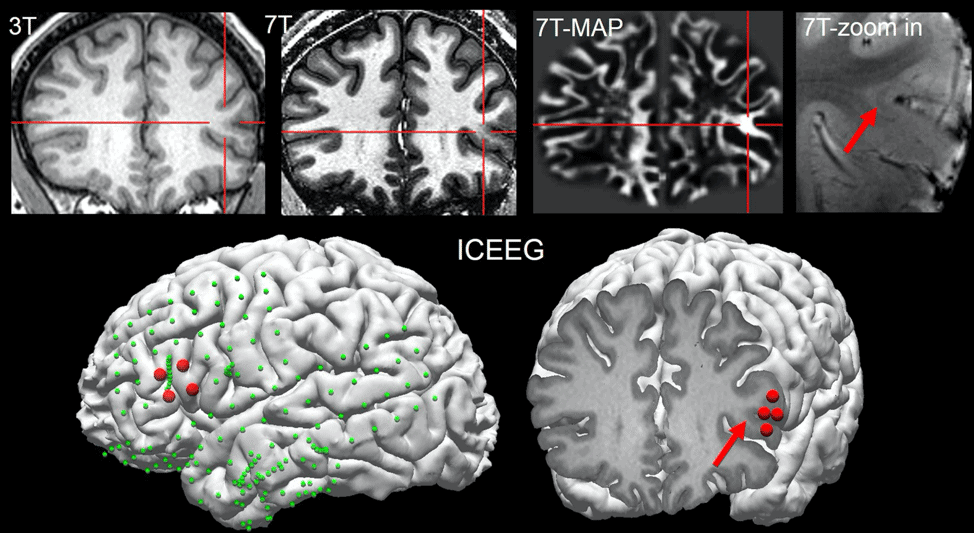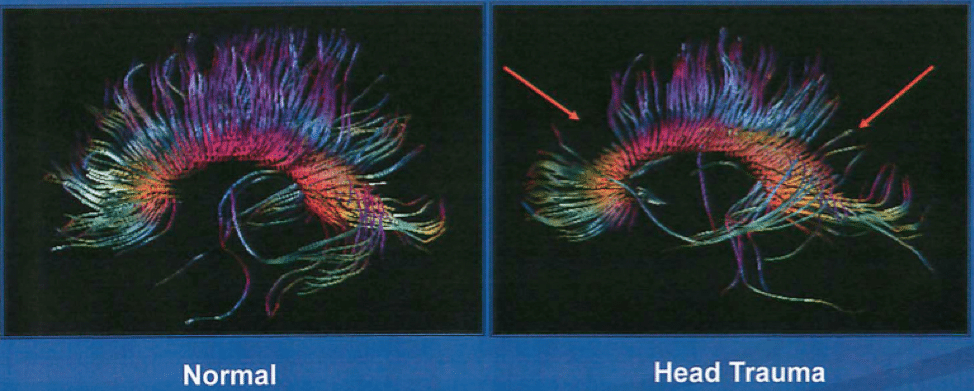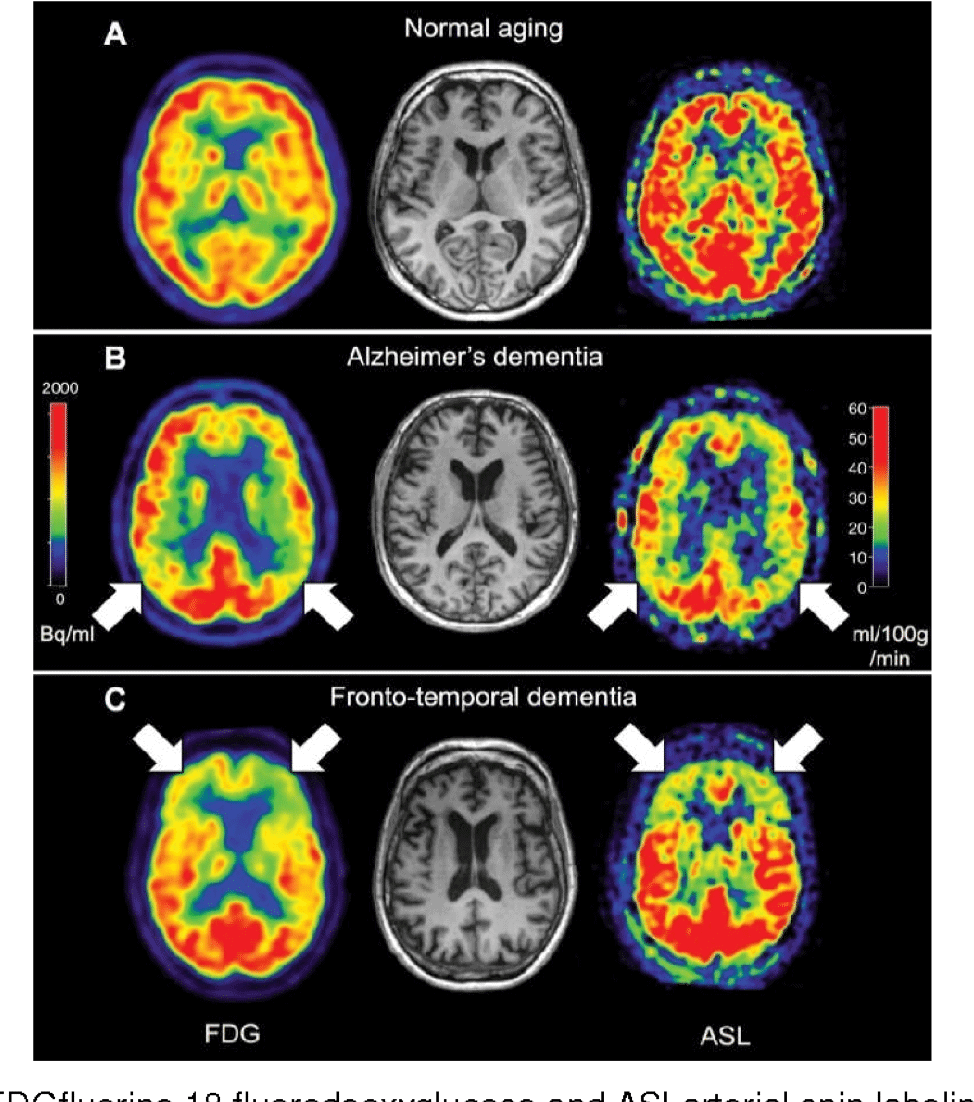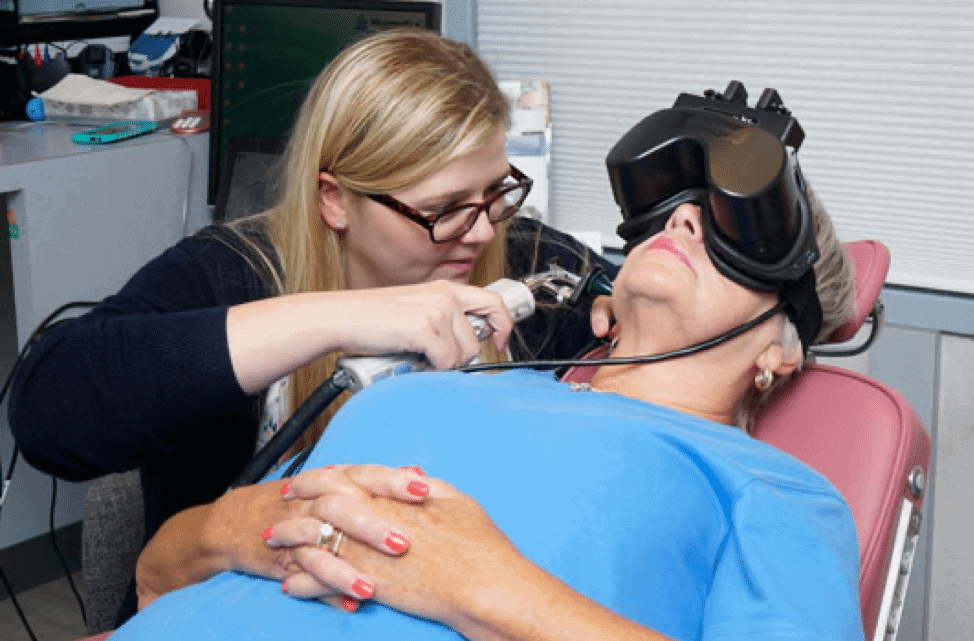New York Brain Injury Lawyer


The Center for Disease Control (CDC) reports that each year nearly 1.5 million people in the United States suffer a brain injury. The CDC also found that currently, more than 5 million Americans have required prolonged hospitalization or long-term medical care because of traumatic brain injuries. Frekhtman & Associates represent victims of traumatic brain injuries, head injuries, and other types of personal injuries within New York City, Bronx, Brooklyn, and Queens.
What Are Causes of Traumatic Brain Injuries?
A traumatic brain injury (TBI) is often caused by a blunt force impact with some outside entity. A TBI can occur as a result of different types of accidents including car accidents, construction accidents, slip and fall, trip and fall, medical malpractice, nursing home neglect, and many others where someone else was negligent. As a result, victims can file a brain injury claim with a personal injury lawyer.
What is a Mild Traumatic Brain Injury?
Mild traumatic brain injury, or MTBI, usually refers to those injuries where the loss of consciousness lasts less than thirty minutes. Symptoms of mild brain injury include headaches, difficulty concentrating or thinking, short-term memory loss, attention problems, irritability, depression, frustration, and sudden variations in mood. MTBI is often overlooked or not properly diagnosed.
What are the signs & symptoms of a Traumatic Brain Injury ?
What is a Severe Traumatic Brain Injury?
A serious or severe traumatic brain injury usually occurs when the individual has lost consciousness for a period greater than half an hour. This is often accompanied by memory loss for more than one day. The resultant symptoms range from decreased ability to think clearly and function, to a state of complete comatose. Survivors of a severe brain injury may have lost the ability to control body movements such as the use of their arms, legs, and the ability to speak clearly. Emotional distress, anger, and depression are additional symptoms.
How to Document Your Head Injury
One of the difficulties of prosecuting a “minor” closed head injury claim is the absence of traditional, objective, medical evidence. Frequently, in rear-end impacts or other types of deceleration trauma, there is a brief loss of consciousness, which may or may not be recalled by the claimant. It is not uncommon for traditional diagnostic tests to be within normal limits.
In the absence of positive findings with the traditional diagnostic procedures for brain injuries, objective evidence of severe injury may be manifested in documentary evidence of life changes. The obvious examples are:
Employment Records – A complete employment file with particular reference in performance reviews, pre and post-trauma. Additional focus on the employment records as they reflect unscheduled absences, sick days, or other references to the failure to meet deadlines.
School Records and Transcripts – Complete transcripts from all educational institutions. Of particular significance is the reference to any standardized tests and the scoring on the same, both pre and post-trauma.

Medical Examinations
The Glasgow Coma Scale (“GCS”) is a common test used by physicians to diagnose whether a brain injury is mild, medium, or severe. This scale helps doctors care for the brain injury patient, formulate a medical treatment plan, and more accurately predict the future prognosis and quality of recovery.
Several weeks later, another scale called Rancho Los Amigos is used. This scale of eight levels of brain injury is based on objective observations of the brain injury survivor‘s reactions.
Diagnostic Testing For Traumatic Brain Injury (TBI)
A number of diagnostic tests can identify and help treat traumatic brain injury and head injury. In a hospital, a basic neurological exam is performed and sometimes a CT scan is ordered. Unless someone presents with a clear injury such as a skull fracture, usually most patients are treated and released without any full medical workup that can find a neurological disorder. A hospital usually does very basic tests for memory loss, level of consciousness, blood clots, closed head injury, examines some risk factors, and checks on prior mental health issues. If a patient’s symptoms do not subside, they may see a treating physician who will refer them to a specialist for more comprehensive neurological testing. Often after trauma, an injury victim may be going to a regular doctor, a physical therapy or sports medicine practice, and not know they need to see a neurologist for an action plan.
3T MRI
A 3T MRI (Magnetic Resonance Imaging) can be given in a large medical center or neuroradiology practice. It has a stronger T or Tesla magnetic field compared to a standard 1.5T MRI. A 3T MRI is the gold standard in the medical community when diagnosing and treating head injuries in the human brain.
A 3T MRI returns higher-quality images in a shorter amount of time allowing for quicker patient examinations. The higher resolution and better image clarity enable neuro-radiologists to see smaller lesions that may not be visible on a regular MRI brain scan.

Susceptibility Weighted Imaging (SWI)
These are brain scans that show veins in the brain. SWI scans look at brain function and can help show diffuse axonal injury. The scan shows venous blood, hemorrhages in the brain, and iron storage. The imaging of blood in the brains’ veins is a blood oxygen level-dependent (BOLD) technique. SWI imaging was originally called BOLD venographic imaging. It is important to contact a health care provider familiar with 3T MRIs, SWI imaging, computed tomography, and other specialized care for brain injury.
the arrows point to micro-bleeds. Figure (A) shows micro-bleeds in the temporal lobe. Figure (B) shows deep micro-bleeds in the right putamen.

Diffusion Tensor Imaging (DTI)
Diffusion tensor imaging (DTI) is an MRI scan that employs anisotropic diffusion to estimate the white matter organization of the brain. It shows cables or fiber bundles traveling in different directions. DTI can show up to six
different directions of travel which is much greater than a standard MRI. DTI shows how water travels along the white matter tracts in the brain. Areas of missing cables confirm brain injury especially since these studies are compared to normal scans. Data collection and projects nation and worldwide will improve the reliability of DTI testing. If axon cables are scattered in all directions, it is like chaos in the brain. It is important to follow up with a positive finding on a DTI scan with neuropsychological testing that can examine brain function and executive function. By having both neuro-radiology diagnostic testing as well as neuro-psych testing a patient is improving their chances of recovery. This treatment is often followed by occupational therapy.

Arterial Spin Labeling (ASL)
ASL is a non-invasive MRI for measuring blood flow also known as tissue perfusion. It is a non-ionizing test. ASL uses the water molecules already circulating throughout the brain along with a radiofrequency pulse to track the blood water as it travels throughout the brain. It is often used as a follow-up test after DTI. Once the blood travels and circulates through the brain, which takes just microseconds, label images is taken.

Videonystagmography (VNG) testing
VNG testing is a series of four exams that test an individual’s ability to follow objects with their eyes. VNG examines how well someone’s eyes respond to information from the vestibular system located in the inner ear responsible for the balance. The test examines whether an issue with a person’s vestibular system may be the reason they experience dizziness, blurred vision, or balance problems. The VNG test is comprised of
- ocular mobility – you will be asked to have your eyes follow objects that jump around, stand still, or move smoothly. The examiner will look for slow responses or inabilities to follow the moving objects.
- optokinetic nystagmus – you will be asked to look at a large visual image that is continuously moving. The test determines if your eyes can track the movements and will similarly look for slow responses or inaccurate following of the object.
- Positional Nystagmus – the examiner will move your head and body into various positions to confirm there is no nystagmus or inappropriate eye movements.
- Caloric Testing – the examiner will stimulate each of your inner ears, one at a time, with warm and then cold air. The test tracks your eye movement with goggles to confirm both of your inner ears can sense this stimulation and that your vestibular system is working properly.

TBI diagnostic testing
There are a number of diagnostic tests that can help doctors pinpoint the location of a brain injury for prognosis and treatment. One valuable type of imaging scan is a SPECT or PET-SCAN which shows a traumatic brain injury in color.
Pet Scan
PET Scan is short for positron emission tomography. In the U.S., close to 2 million people suffer a brain injury each year with up to eighty five percent of all injuries being classified as mild TBI. However, a conventional MRI cannot diagnose mild TBI as it is simply insensitive to this injury. A PET SCAN is a functional imaging test that is sensitive to Mild Traumatic Brain Injury (“MBTI”) changes. A PET scan shows 3-D images of the brain in color and can illustrate which part of the brain has sustained injury.
PET scans have been around since the 1970’s. The technology has advanced tremendously since that time especially in terms of the quality of the diagnostic imaging. In a PET scan test, a small radionuclide such as a tracer or isotope is introduced into the body. The tracer is mixed into a sugar molecule which the body will absorb. Doctors then analyze how the body absorbs and metabolizes the sugar molecule containing the tracer. If the body does not absorb the molecule or has trouble absorbing it, this is evidence that the brain in that area is functioning poorly.
PET scan can show different regions of the brain including those responsible for memory, attention, mood, and other vital functions.

SPECT SCAN
A SPECT scan is short for single photo emission computed tomography. It is similar to a PET SCAN in that a small amount of radioactive tracer is injected into the body. Doctors monitor how the body absorbs and utilizes the biologically active molecule. SPECT scans are less expensive to conduct than PET scans and offer lower resolution imagery.
The brain injury lawyers at Frekhtman & Associates work with top neuroradiologists who conduct PET scans and other testing in accordance with the latest medical technology currently available. There is never a fee to our clients until we win compensation for them first and we are glad to offer free legal advice.
BRAIN INJURY FAQs
The quality of a person’s daily life can be greatly compromised by incurring a head injury which is a catastrophic injury that is life changing. If you’ve suffered a moderate to severe head injury, immediate medical treatment and rehabilitation are usually required. Many survivors of traumatic brain injuries (TBIs) find it difficult to quickly return to their jobs — and to handle various parenting or household tasks.
Our law firm understands the extreme stress that you and your family are under right now. It’s our goal to help all clients obtain the medical care they need while we’re investigating the negligent behavior of those who harmed them — or the specific events that caused their traumatic brain injuries (TBIs). A TBI has a lifelong impact so an experienced attorney is essential to ensure survivors get the right medical care and see top medical experts.
Once you hire our firm, we’ll start preparing your case and gathering together all the most pertinent evidence on your behalf. We’ll then try to negotiate a settlement with the lawyers representing the defendant. We’ll fight for the full amount you deserve to compensate you for all your pain and suffering, medical bills, lost earnings, and future medical expenses. If an early settlement can’t be reached, we’ll continue preparing your case for trial.
To help you better understand the key aspects of a brain injury, we’ve put together the material set forth below. After briefly discussing the general symptoms of brain injuries, we also look at some of the most common types. We’ve also included some general TBI recovery tips. With extensive experience with all types of TBI lawsuits our firm is ready to explain your legal options.
Feel free to call New York Traumatic Brain Injury Attorney at (866) ATTY LAW or fill out the online contact form on this page.
HOW IS A TRAUMATIC BRAIN INJURY OFTEN DEFINED?
This type of injury often occurs after some type of external force impacts the brain causing it to sometimes swell or bleed internally resulting in a serious head trauma such as a brain bleed. This happens from a violent blow to the head or other trauma. In some instances, a person’s head may be greatly shaken — or the skull can be fractured after the individual’s head strikes a hard surface (like a car’s dashboard) or is penetrated by a foreign object. Doctors often view TBIs as mild, moderate or severe.
- A mild traumatic brain injury (MTBI) may just cause temporary functional difficulties. There may or may not be a loss of consciousness for a few seconds or minutes. People often report feeling rather dazed or even dizzy while coping with this type of injury;
- Moderate to severe TBIs can involve far more troubling symptoms. Someone who endures one of these may lose consciousness for a period of minutes or even hours. In a few of the worst cases, the person can fall into a coma. While most comas only last a period of days or a few weeks – they can last for many years in highly complex cases.
Some doctors view TBIs as the harm that occurs after birth due to events that are unrelated to hereditary, degenerative, or birth trauma damages. Acquired brain injuries include those that are caused by near-drowning, strokes, tumors, electric shock – and the much more common causes set forth below.
WHAT ARE THE MOST FREQUENT CAUSES OF SUCH INJURIES?
- Car accidents
- Falls
- Head injuries incurred during sports activities
- Assaults and gunshot wounds
- Blasts caused by explosions – and general combat injuries
Brain trauma and brain damage can occur after a variety of personal injury accidents. It is important to obtain a free consultation and free case evaluation from an experienced brain injury attorney. Quality legal representation will result in full compensation and justice for brain injury victims. Frekhtman & Associates works with best in class medical professionals providing top of the line medical care and treatment which does two things:
1) helps TBI victims recover and reclaim their lives
2) allows our firm to maximize the compensation for a serious brain injury lawsuit. Many survivors suffer a lifelong disability and never make a full recovery. In this sense, a TBI changes a person resulting in a different human being after the traumatic event.
HOW COMMON ARE TRAUMATIC BRAIN INJURIES (TBI) ?
Close to 2 million people in the United States suffer a traumatic brain injury every year. This results in nearly 300,000 emergency room visits nationwide with over 50,000 deaths and over 100,000 permanent injuries. The age ranges of people with the highest risk are young children under four years old, teenagers between 15-19, and older adults over 65 years old.
What Kinds of TBI are Recurrent Brain Injuries?
Second impact syndrome is when a second traumatic brain injury occurs before symptoms from the first TBI have fully resolved. This type of TBI often happens after sports injuries such as NFL concussions as well as injuries to high school or college athletes.
Dementia pugilistica: is a chronic traumatic encephalopathy that happens when one individual suffers many brain injuries over an extended period of time such as a 5 year period to 10 years or more. Victims lose their memory and often are diagnosed with Parkinson’s type tremors and have an increased risk of Alzheimer’s disease. Difficulty walking, speaking, and using socially acceptable behavior are common symptoms. People who suffer recurrent brain injuries are more likely to need long-term disability, permanent disability, and daily rehabilitation. It is very important to consult with an experienced TBI lawyer to obtain fair compensation from the insurance company in personal injury lawsuits.

SYMPTOMS THAT MAY APPEAR AFTER A TBI OR OTHER BLOW TO THE HEAD
- Loss of balance and problems with motor skills
- Nausea and vomiting
- Numbness
- Drowsiness and basic fatigue
- Sleeping excessively
- Moderate to severe headaches
- Sleep disturbances – such as difficulty in falling asleep or staying asleep
- Feeling unusually confused
- Blurred vision, vision loss, or ringing in the ears
- Increased sensitivity to light and sound
Patients who suffer concussions often report many of the symptoms set forth above, along with other types of serious injury such as difficulties with their speech, headaches, concentration, memory, numbness, sense of smell and taste – and mood disorders. All suspected concussions and any apparent “minor” head injury should be fully evaluated by a physician or emergency room staff.
RECOVERY TIPS THAT CAN HELP AFTER YOU OBTAIN IMMEDIATE MEDICAL TREATMENT
- Make sure you get plenty of rest. Once your doctor says you can return to work, do so slowly — adding new activities to your schedule after you’re clearly showing signs of physical and cognitive improvement;
- Avoid all dangerous activities that could expose you to another TBI. Secondary injuries are far too common and can greatly lower your chances of long-term recovery. Whatever else you do, avoid prematurely returning to any type of job that requires you to work outdoors, on unstable surfaces – or anywhere near falling objects;
- Wait until your doctor says you’re ready to return to certain activities. Get considerable rest before driving a car again or riding a motorcycle (or regular bicycle) again. You must also avoid using heavy equipment until you’re certain that your vision and coordination are completely normal again;
- Carefully follow all doctor directions regarding your prescriptions. Never mix them with alcohol or other drugs that you haven’t disclosed to your doctor. Even certain vitamins and OTCs (over-the-counter drugs) can alter the way your prescribed drugs are supposed to work;
- Give yourself time to recover your memory and heal from depression or moodiness. Be gentle with your personal expectations. Different types of brain injuries can require many weeks or months before significant improvements can be made. Scheduling time to speak with a psychotherapist can prove very beneficial to anyone trying to learn more about their “new normal” way of experiencing life. Remember — there’s always a good reason to have hope for your future.
- There are brain injury associations and groups that help survivors.
How to Win a Traumatic Brain Injury Case
It is necessary to orient the lay jury into the gross and microscopic anatomy of the brain, the surrounding structures, and the brain itself. This gives the lay jury an understanding of how the trauma involved in a closed head injury case has resulted in the psychological behavior changes manifested by the plaintiff. The use of medical illustrations depicts both the anatomy of the skull, brain, and the mechanism of closed head injury.
Our Services
The brain injury lawyers at Frekhtman & Associates develop each client matter as a medical-legal team that includes attorneys, neuropsychologists, neurologists, neuroradiologists, and other top brain injury, specialists. Our brain injury law firm handles TBI cases in the Metro New York City area including Brooklyn (Kings County), Queens, Manhattan (New York County), Bronx, Staten Island (Richmond County), and all of New York State. We prepare each case for trial meticulously which ensures maximum compensation for our clients.
Obtain a free case evaluation from experienced brain injury attorneys. Brain injury lawsuits can be filed against responsible parties including property owners, general contractors, drivers, and owners of automobile vehicles at fault in motor vehicle accidents, and others. Brain injury is the damages component for which it is vital to obtain best-in-class medical care. Diagnostic testing can now visualize brain cells and pinpoint the location and type of brain injury allowing brain injury victims to get the correct medical attention.
Frekhtman & Associates charges no fee unless we first recover money for our clients. We pay for all expenses while prosecuting a brain injury lawsuit through the courts. Our firm’s trial lawyers have been successful in winning some of the top verdicts and settlements in New York as is reflected on our Verdicts page. Protect your legal rights by contacting an experienced New York State brain injury attorney.
Contact Us
Feel free to call New York Traumatic Brain Injury Attorney at (866) ATTY LAW or fill out the online contact form on this page.
While it’s possible to handle a personal injury case on your own, having an experienced attorney by your side significantly increases the likelihood of a favorable outcome. According to studies, victims represented by a personal injury lawyer receive higher settlement amounts compared to those who handle their cases independently. Here are some of the practice areas we handle:
